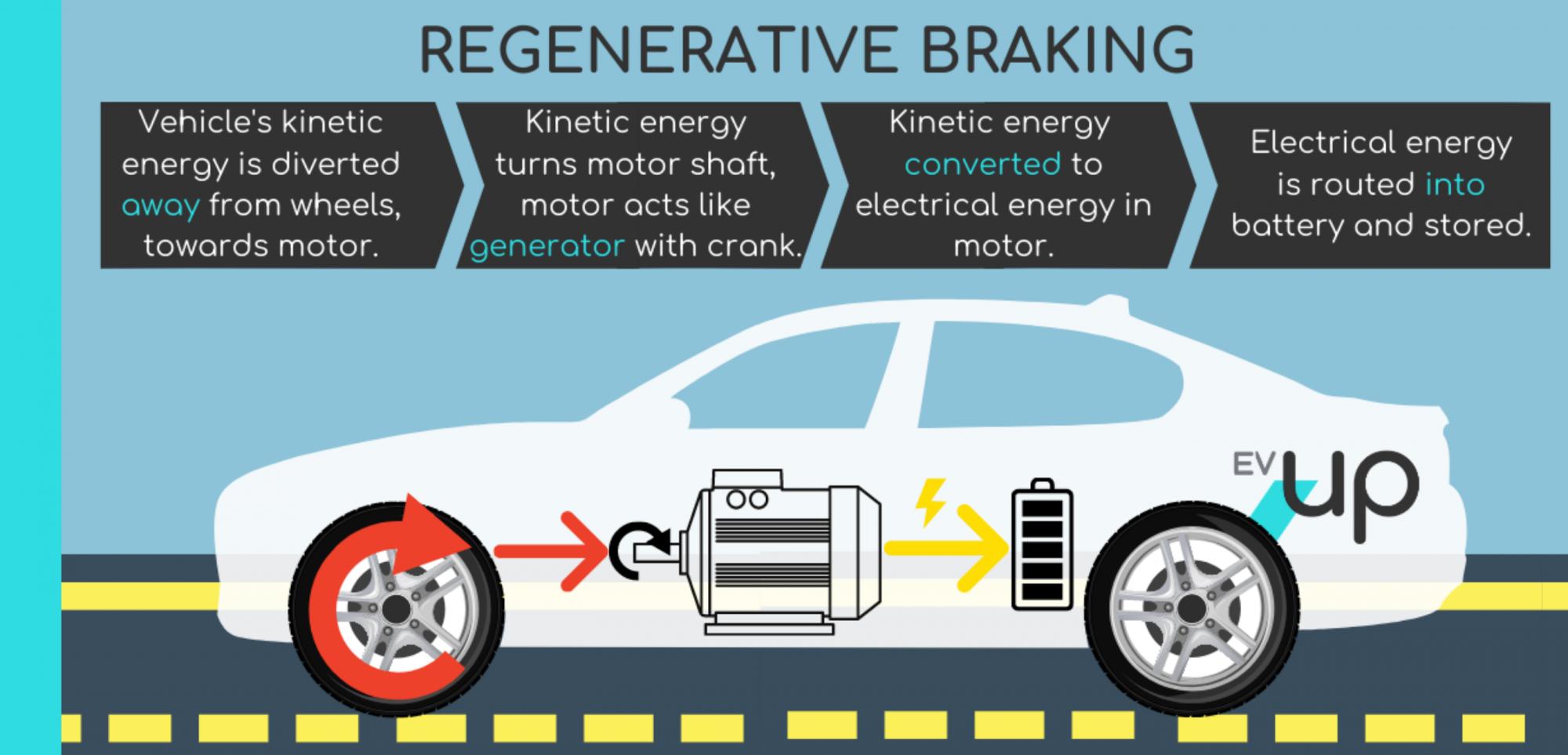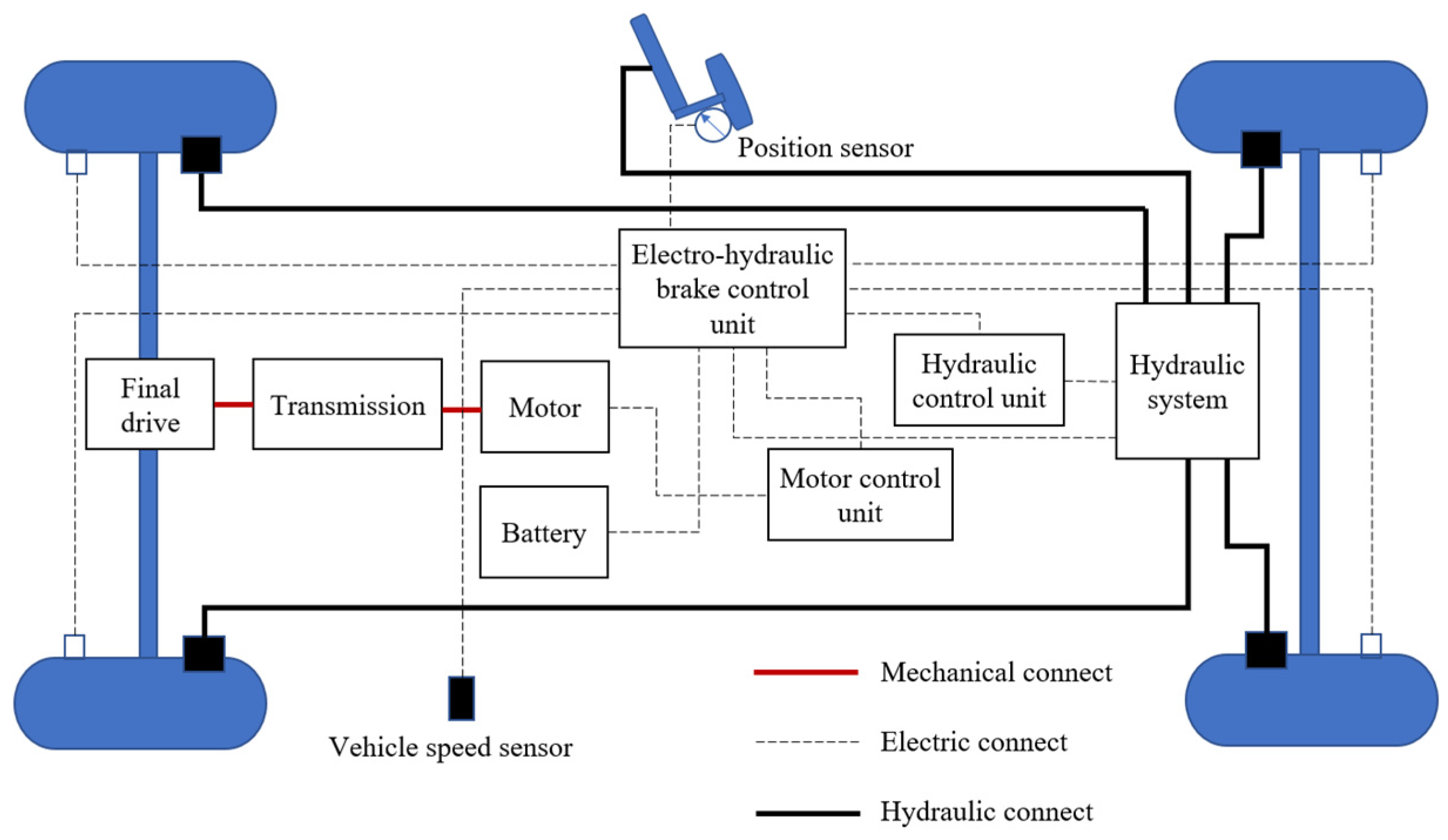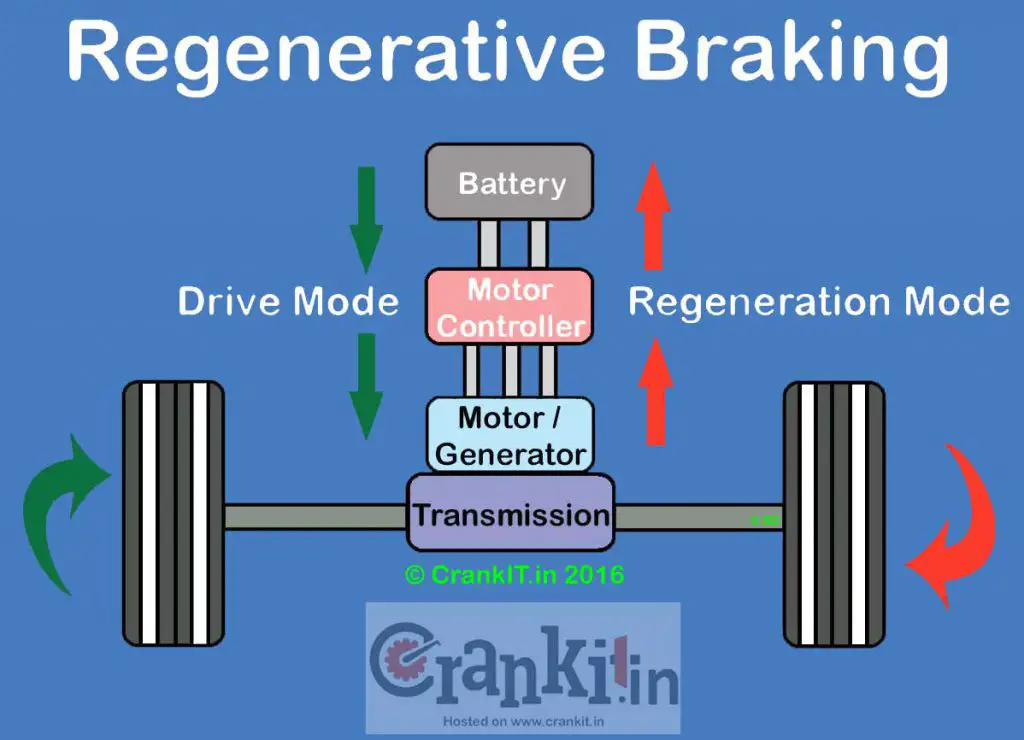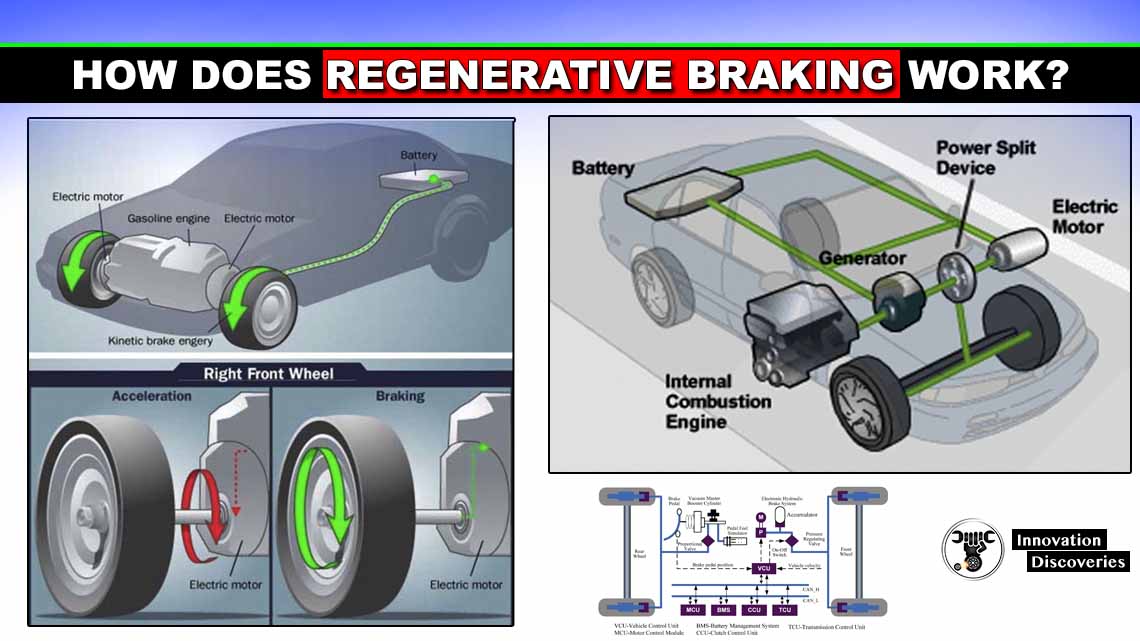Unique Info About Does Regenerative Braking Use Capacitors

Regenerative Braking and Capacitors
1. Unpacking the Basics of Regenerative Braking
So, you're curious about regenerative braking and whether those electrical storage units we call capacitors play a role. Let's dive into this. Imagine a car slowing down, not just grinding to a halt with traditional friction brakes, but cleverly capturing some of that kinetic energy and putting it to good use. That's the basic idea behind regenerative braking. Instead of wasting energy as heat, it converts it into electricity, which can then be stored for later use. Pretty neat, right?
Think of it like this: you're pushing a swing, and instead of letting it slow down naturally, you gently pull it back, storing some of its momentum to give it another boost later. Regenerative braking does something similar, except instead of a swing, it's a car, and instead of your muscles, it's an electric motor acting as a generator.
Now, where do capacitors fit into all of this? Well, while batteries are often the primary storage device in electric and hybrid vehicles, capacitors can play a supporting role, especially in handling the rapid bursts of energy generated during braking. But let's not jump ahead just yet; let's first understand why this whole thing is so important.
Why bother with regenerative braking at all? Well, for starters, it increases fuel efficiency (or extends battery range in electric cars). It also reduces wear and tear on your brake pads, meaning fewer trips to the mechanic and saving you money in the long run. Plus, it's just plain cool — turning wasted energy into something useful is always a win!
2. Capacitors
Okay, let's talk about capacitors. Think of them as tiny, super-fast energy reservoirs. Unlike batteries that store energy through chemical reactions, capacitors store energy electrostatically. This means they can charge and discharge much faster than batteries. Imagine filling a bucket with a small funnel (that's a battery) versus pouring water directly from a tap (that's a capacitor). The capacitor wins hands down in speed!
This rapid charging and discharging capability makes capacitors particularly useful in situations where you need a quick burst of energy, like during regenerative braking. When you hit the brakes, a surge of electricity is generated. Capacitors can quickly absorb this energy, preventing it from being wasted. They're like the sprinters of the energy storage world, quick and powerful for short bursts.
However, there's a catch. While capacitors can charge and discharge quickly, they typically store less energy than batteries for a given size. This is why they're often used in conjunction with batteries in regenerative braking systems. The capacitor handles the initial surge of energy, smoothing out the load on the battery and improving overall system efficiency.
So, in a nutshell, capacitors are excellent for capturing and releasing energy rapidly, but they have a lower energy density than batteries. This makes them ideal for handling the short, intense bursts of energy generated during braking, while batteries provide a longer-term energy storage solution.
3. Do Regenerative Braking Systems Always Use Capacitors?
Here's the million-dollar question: Do all regenerative braking systems use capacitors? The short answer is no, not all of them do. Many systems rely solely on batteries to store the energy generated during braking. However, the use of capacitors is becoming more common, especially in advanced regenerative braking systems.
Whether or not a system incorporates capacitors depends on a variety of factors, including the design of the vehicle, the specific requirements of the regenerative braking system, and cost considerations. Some manufacturers opt for simpler, battery-only systems to reduce complexity and cost, while others choose to integrate capacitors to improve efficiency and performance.
The decision to use capacitors often comes down to a trade-off. Capacitors can enhance the efficiency and responsiveness of the regenerative braking system, but they also add to the cost and complexity. Ultimately, engineers must weigh the benefits against the drawbacks to determine the optimal configuration for a particular vehicle.
In some cases, you might even find hybrid systems that combine capacitors with other energy storage devices, such as flywheels. Flywheels store energy mechanically by spinning a heavy rotor at high speeds. These hybrid systems are often used in high-performance applications where both rapid energy capture and high energy density are required. So, while capacitors aren't always present, their presence often indicates a more sophisticated and potentially more efficient system.
4. Benefits of Using Capacitors in Regenerative Braking
5. Enhanced Efficiency
One of the primary benefits of using capacitors in regenerative braking is enhanced efficiency. Because capacitors can quickly absorb the energy generated during braking, they minimize energy loss due to heat. This improves the overall efficiency of the system, allowing the vehicle to recover more energy and extend its range or fuel efficiency. In short, your hybrid or electric car gets more out of every charge or gallon of fuel.
Think of it like a sponge soaking up water. A good sponge quickly absorbs water, minimizing spillage. Similarly, a capacitor quickly absorbs the energy generated during braking, minimizing energy waste. The faster the energy is captured, the less is lost as heat due to resistance in the system. And less wasted energy means better performance and fuel economy.
Moreover, by smoothing out the load on the battery, capacitors can help extend the lifespan of the battery. Batteries are sensitive to rapid charging and discharging cycles, which can degrade their performance over time. Capacitors act as a buffer, absorbing the initial surge of energy and preventing it from damaging the battery.
This all translates to fewer battery replacements and a longer lifespan for your vehicle's energy storage system. Not only is this good for your wallet, but it's also good for the environment, as it reduces the need to manufacture and dispose of batteries.
6. Improved Responsiveness
Capacitors also contribute to improved responsiveness in regenerative braking systems. Because they can discharge energy quickly, they allow the system to respond more rapidly to changes in braking demand. This results in a smoother and more predictable braking experience for the driver. Imagine a lag between pressing the brake pedal and feeling the car slow down — not ideal!
With capacitors in the system, the regenerative braking can kick in almost instantly, providing a more immediate and controlled braking force. This is especially important in situations where you need to slow down quickly, such as in heavy traffic or on slippery roads. The improved responsiveness of the system can enhance safety and give the driver more confidence.
Furthermore, the rapid discharge capability of capacitors can also be beneficial during acceleration. In some regenerative braking systems, the energy stored in the capacitors can be used to provide a boost of power during acceleration, improving the vehicle's overall performance. This is particularly useful when accelerating from a stop or when overtaking other vehicles.
So, not only do capacitors improve braking performance, but they can also enhance acceleration, making for a more enjoyable and responsive driving experience. It's like having a little extra power on tap whenever you need it.
7. Extending Battery Life
As mentioned earlier, one of the most significant benefits of using capacitors in regenerative braking is extending the life of your vehicle's battery. Batteries, especially those used in electric and hybrid cars, are expensive to replace. By reducing the stress on the battery, capacitors help it last longer, saving you money in the long run.
Think of it like running a marathon. If you sprint the entire way, you'll quickly become exhausted and may even injure yourself. Similarly, if a battery is subjected to rapid charging and discharging cycles, it will degrade more quickly. Capacitors act like a steady pacer, helping the battery maintain a consistent pace and avoid excessive strain.
By absorbing the initial surge of energy during braking, capacitors prevent the battery from being overloaded. This reduces the amount of heat generated within the battery, which is a major factor in battery degradation. The result is a cooler, healthier battery that lasts longer and performs better.
So, investing in a regenerative braking system that incorporates capacitors is not only good for the environment, but it's also good for your wallet. By extending the life of your battery, you can avoid costly replacements and keep your vehicle running smoothly for years to come.

Configuration Of Regenerative Braking System. Download Scientific Diagram
FAQ
8. Frequently Asked Questions about Regenerative Braking and Capacitors
Let's address some common questions about regenerative braking and capacitors. After all, understanding the tech behind your car is always a good idea, right?
Q: Are capacitors the same as batteries?
A: Nope! While both store energy, they do it in fundamentally different ways. Batteries use chemical reactions, while capacitors use an electrostatic field. This means capacitors charge and discharge much faster, but store less energy for their size.
Q: Can I add capacitors to my existing car to get regenerative braking?
A: Unfortunately, it's not that simple. Regenerative braking is an integrated system that requires a specially designed motor and control system. You can't just bolt on a capacitor and expect it to work. It requires a significant overhaul of the vehicle's power train. It's best to buy a car that already has regenerative braking installed.
Q: Are there any drawbacks to using capacitors in regenerative braking?
A: Yes, there are a few. Capacitors typically have a lower energy density than batteries, meaning they can't store as much energy for their size. They can also add to the cost and complexity of the system. However, the benefits of improved efficiency and responsiveness often outweigh these drawbacks.
Q: What's the future of capacitors in regenerative braking?
A: The future looks bright! As capacitor technology continues to improve, we can expect to see them used more widely in regenerative braking systems. Advancements in materials and design are leading to capacitors with higher energy densities and lower costs, making them an increasingly attractive option for automakers. We might even see vehicles powered entirely by capacitors one day!

EV Regenerative Braking System, Component And Working System E


